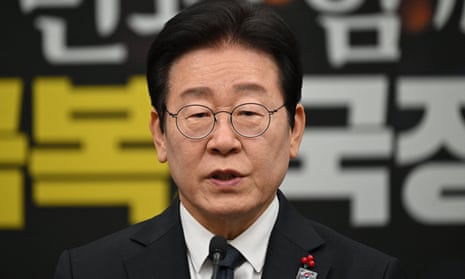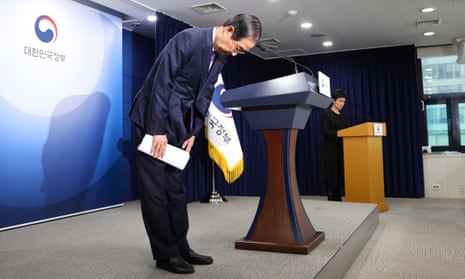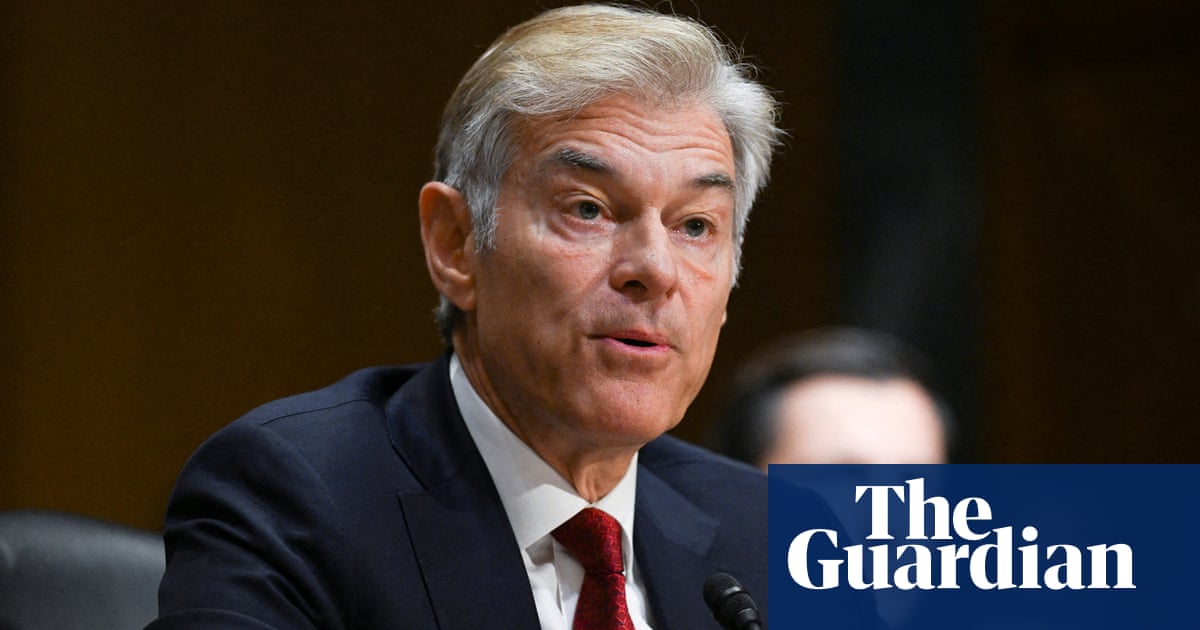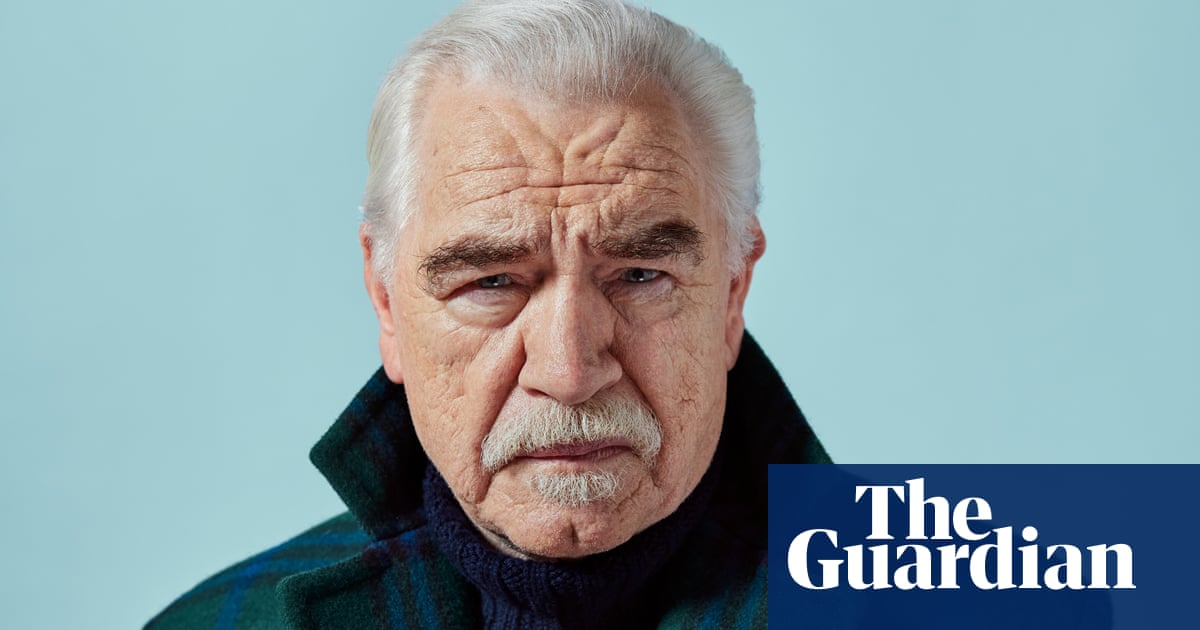Key events
Show key events only
Please turn on JavaScript to use this feature
Han Duck-soo who was appointed prime minister by Yoon Suk Yeol. He became acting president after South Korea’s National Assembly voted to impeach Yoon, a conservative, about two weeks ago over his short-lived imposition of martial law on December 3.
Han’s time as acting president quickly became mired in difficulties when he clashed with the opposition Democratic Party over appointments to the Constitutional Court, the inauguration of an independent investigation into Yoon’s martial law order, and new pro-farmer bills.
The main gripe is the Democratic Party’s demand that Han approve the assembly’s nominations of three new Constitutional Court justices to restore its full nine-member bench before it officially rules on Yoon’s impeachment.
The Democratic Party are pushing for more seats because having them will increase the likelihood of the court deciding to oust Yoon as president once and for all.
Naturally, Yoon’s supporters in the governing People Power Party are against the proposed appointment of the three justices, arguing that acting president Han should not flex his authority until Yoon has been formally removed from office.

South Korea's main opposition Democratic Party leader Lee Jae-myung delivers a public statement on the impeachment motion against acting president Han Duck-soo at the National Assembly in Seoul on December 27, 2024.) (Photo by JUNG YEON-JE/AFP via Getty Images) Photograph: Jung Yeon-Je/AFP/Getty Images
Ahead of the parliamentary session, opposition leader Lee Jae-myung said his Democratic Party, which has majority control of parliament, accused Han of “acting for insurrection.”
“The only way to normalize the country is to swiftly root out all the insurrection forces,” Lee said in an inflammatory speech, adding the party was acting to remove individuals who have put the country at risk.
Han’s impeachment means he will lose the duties and powers of the president until the Constitutional Court decides his future. The acting president could be dismissed or reinstated.
Lawmakers with the governing People Power Party boycotted the vote and shouted at sedentary National Assembly Speaker Woo Won Shik that the vote was “invalid” and demanded his resignation. No violence or injuries were reported.
People Power Party lawmakers protested after Woo called for a vote on Han’s impeachment motion after claiming its passage only needed a simple majority, not a two-thirds majority.
The National Assembly can impeach most South Korean officials with a simple majority vote, but two-thirds of the assembly need to agree to impeach a president.
However, there are no specific laws on the impeachment of an acting president.
The Korean won has plummeted to its lowest level against the dollar since 2008’s global financial crisis.
South Korea’s opposition-controlled National Assembly has voted to impeach the country’s acting leader, Han Duck-soo.
The assembly approved the impeachment motion in a 192-0 vote on Friday. Governing party lawmakers boycotted the vote.
Han, the No 2 official in South Korea, has been the caretaker leader after President Yoon Suk Yeol was impeached by the assembly over his short-lived imposition of martial law this month.
Han’s impeachment further deepens South Korea’s political crisis and damages its international image.

Finance minister Choi Sang-mok is set to replace Han as acting president.
We’ll bring you live updates on this breaking story…

 3 months ago
70
3 months ago
70













































